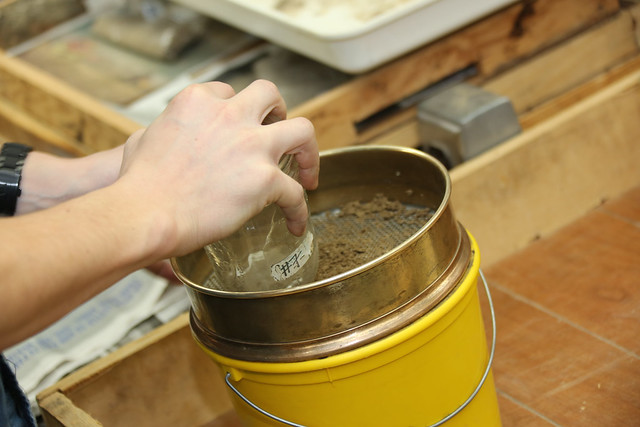UW-Green Bay and Purdue to work on first large-scale study linking soil health with Great Lakes water quality
Four-year, $508,000 project begins immediately
GREEN BAY – University of Wisconsin-Green Bay will take the lead on a $508,000 grant for one of the first large-scale attempts to directly link in-field soil health parameters with intensive edge-of-field water quality monitoring across the Great Lakes Basin. The results of this work will provide direct management recommendations for improving the health and quality of the Great Lakes.
UW-Green Bay Professor Kevin Fermanich (Natural and Applied Sciences) and Associate Vice Chancellor for Academic Affairs Mathew Dornbush (Natural and Applied Sciences) will lead the project as part of the Cooperative Ecosystem Studies Units (CESU) Network (see more on this below).
This four-year, $508,000 project, is a partnership among UW-Green Bay, Purdue University, the United States Geological Survey, and the United States Department of Agriculture (USDA)-Natural Resources Conservation Service. The project is funded through Great Lakes Restoration Initiative (GLRI) programs administered by USDA and United States Environmental Protection Agency (EPA) Great Lakes National Program Office.
“The large-scale nature of this project allows us to evaluate the strength of these relationships across distinct management histories, soil types, parent materials and climates,” said Fermanich. “Put simply, our goal is to determine relationships that link soil health and water quality within the U.S. Great Lakes Watershed.”
UW-Green Bay and Purdue will seek to develop links between biochemical makeup of soil in the fields, and the water that leaves those fields. A future objective will allow the evaluation of connections between conservation techniques and associated edge-of-field runoff.
“Farmers want to keep nutrients and soil in the fields,” says Molly Meyers, Agricultural Outreach Coordinator for the Alliance for the Great Lakes and Research Assistant with UW-Green Bay. “The research will help farmers to manage soil and water health with more confidence. New knowledge from this study will help producers to better understand the co-benefits of their management and conservation practices to both soil and water.”
The team has already begun baseline testing. Faculty, undergraduate and graduate students will be involved in the research and data analysis.
UW-Green Bay receives prestigious selection in CESU Network in the Great Lakes-Northern Forest Region
This Great Lakes water quality research grant (above) is a result of UW-Green Bay’s recent prestigious selection as a member institution of the Cooperative Ecosystem Studies Units (CESU) Network in the Great Lakes-Northern Forest region. The CESU Network is a national consortium of federal agencies, tribes, academic institutions, state and local governments, non-governmental conservation organizations, and other partners working together to support informed public trust resource stewardship. The Great Lakes Northern Forest (GLNF) region includes 12 states in the Great Lakes Basin and contains some of the nation’s most significant water resources and forest lands. Partnerships and projects use interdisciplinary ecosystem studies to provide resource managers with high-quality scientific research, technical assistance, and education.
“I am very excited about the scholarly and educational opportunities that becoming a partner institution in the GLNF CESU will afford UW-Green Bay,” said Provost Greg Davis. “The successful application led by UW-Green Bay faculty members Matt Dornbush and Kevin Fermanich, with Director of the Office of Grants and Research, Lidia Noon, clearly exemplifies how our history of interdisciplinary strength, as well as regional geographic presence, align with the objectives of the GLNF CESU.
About the University of Wisconsin-Green Bay
The University of Wisconsin-Green Bay is a comprehensive public institution offering undergraduate and graduate programs to 6,700 students. The University transforms lives and communities through exceptional and award-winning teaching and research, innovative learning opportunities, and a problem-solving approach to education. For more information, visit www.uwgb.edu.
###
Click to advance slideshow or view the album on Flickr.
– Photos by Dan Moore, Marketing and University Communication





